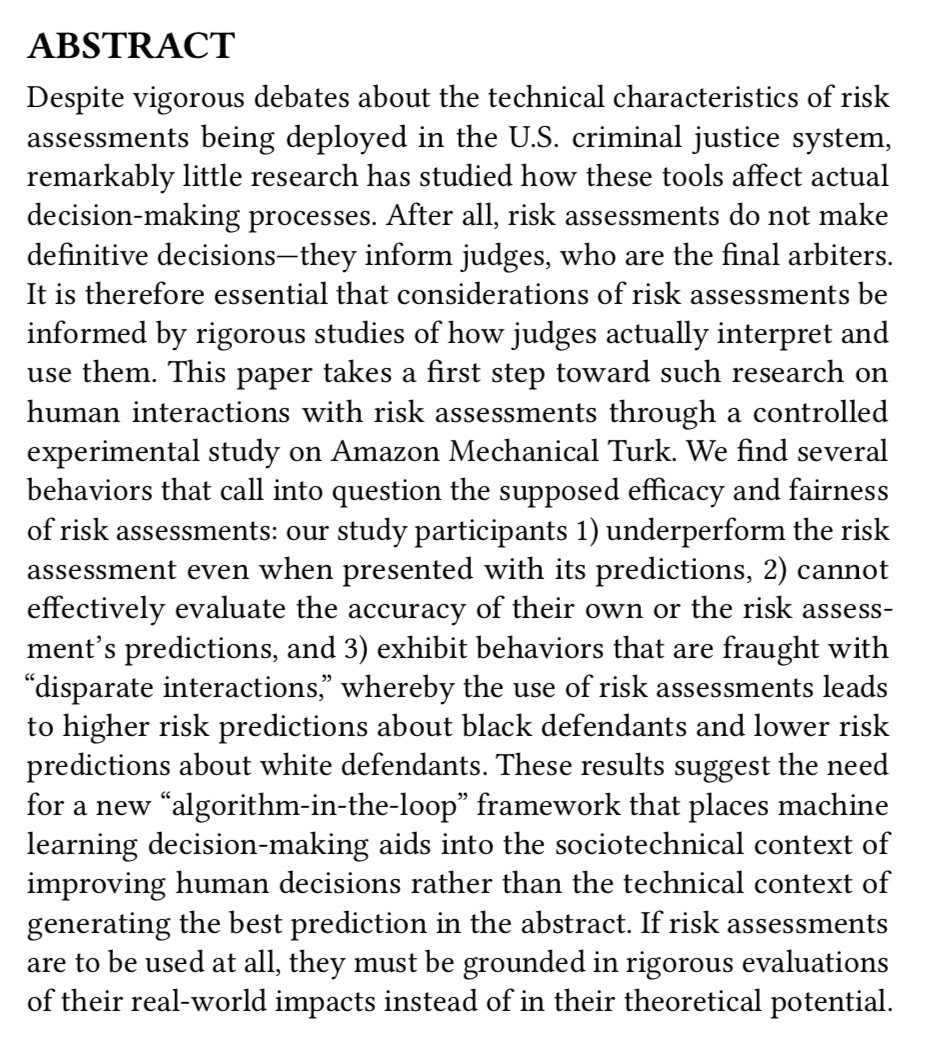
Assistant Professor @umsi @fordschool, Faculty Associate @BKCHarvard, Author of "The Smart Enough City" @mitpress.
How to get URL link on X (Twitter) App


 This issue looks at tech ethics as a practical and political endeavor, rather than a primarily philosophical one. What's happened as "tech ethics" has become a widespread discourse? What are the limits of tech ethics initiatives? How can we develop better paths forward?
This issue looks at tech ethics as a practical and political endeavor, rather than a primarily philosophical one. What's happened as "tech ethics" has become a widespread discourse? What are the limits of tech ethics initiatives? How can we develop better paths forward?

 This finding challenges a key argument for adopting algorithms in government. Algorithms are adopted for their predictive accuracy, yet decisions require more than just predictions. If improving human predictions doesn't improve human decisions, then algorithms aren't beneficial.
This finding challenges a key argument for adopting algorithms in government. Algorithms are adopted for their predictive accuracy, yet decisions require more than just predictions. If improving human predictions doesn't improve human decisions, then algorithms aren't beneficial.

 Research into fair machine learning fails to capture an essential aspect of how risk assessments impact the criminal justice system: their influence on judges. Considerations of risk assessments must be informed by rigorous studies of how judges actually interpret and use them.
Research into fair machine learning fails to capture an essential aspect of how risk assessments impact the criminal justice system: their influence on judges. Considerations of risk assessments must be informed by rigorous studies of how judges actually interpret and use them.